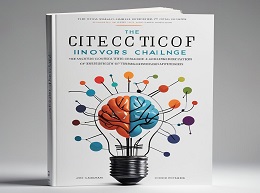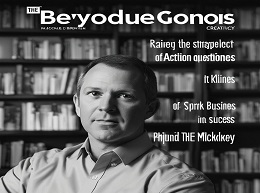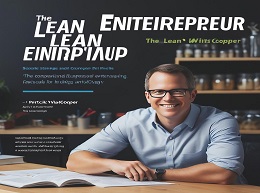Becoming a Category of One: How Extraordinary Companies Transcend Commodity and Defy Comparison

Standing Out in a Crowded Market
In a world where markets are saturated with similar products and services, "Becoming a Category of One: How Extraordinary Companies Transcend Commodity and Defy Comparison" by Joe Calloway offers a blueprint for companies to differentiate themselves. Calloway provides actionable insights and strategies to help businesses break free from the pack and establish a unique position in their industry. This book is a must-read for entrepreneurs, business leaders, and marketers looking to elevate their brands above the competition.
Defining a Category of One
Calloway defines a "Category of One" company as one that is so distinct and exceptional that it defies comparison with its competitors. These companies are not just the best at what they do; they are the only ones who do what they do in the way they do it. This uniqueness makes them the go-to choice for customers and ensures long-term success.
The Importance of Differentiation
Differentiation is crucial in today's competitive business environment. Without it, companies risk becoming commodities, where the only differentiating factor is price. Calloway emphasizes that true differentiation goes beyond superficial changes and requires a deep understanding of what makes a company unique.
Principle 1: Define Your Unique Value Proposition
A strong unique value proposition (UVP) is the cornerstone of any Category of One company. Calloway urges businesses to clearly articulate what sets them apart from the competition. This involves identifying the unique benefits and experiences that only they can offer. For example, Apple’s UVP centers on innovative design and seamless integration across its product ecosystem, which consistently sets it apart from other tech companies.
Principle 2: Deliver Consistently Exceptional Customer Experiences
Customer experience is a key differentiator for Category of One companies. Calloway highlights the importance of creating memorable and positive interactions at every touchpoint. Companies like Ritz-Carlton and Zappos are known for their exceptional customer service, which fosters strong customer loyalty and word-of-mouth referrals.
Principle 3: Cultivate a Strong Brand Identity
A compelling brand identity helps companies stand out in the marketplace. Calloway discusses the need for a cohesive and consistent brand message that resonates with the target audience. Nike’s brand identity, centered on inspiration and innovation in athletic performance, is a prime example of how a strong brand can elevate a company to Category of One status.
Principle 4: Innovate Relentlessly
Innovation is critical to staying ahead of the competition. Calloway encourages businesses to continuously seek new ways to improve their products, services, and processes. Tesla’s relentless focus on innovation in electric vehicles and sustainable energy solutions has positioned it as a leader in the automotive industry, transcending traditional car manufacturers.
Apple: Redefining Technology and Lifestyle
Apple’s journey to becoming a Category of One is a testament to the power of innovation and design. From the groundbreaking introduction of the iPhone to the creation of the Apple ecosystem, Apple has consistently delivered products that redefine how we interact with technology. Their focus on sleek design, intuitive user interfaces, and seamless integration has created a loyal customer base that views Apple products as indispensable.
Southwest Airlines: Transforming Air Travel
Southwest Airlines transformed the airline industry by focusing on low fares, friendly service, and operational efficiency. Their unique approach to air travel, including a no-frills service model and a strong company culture, has differentiated them from other airlines. By prioritizing customer experience and cost-efficiency, Southwest has built a brand that stands out in the crowded airline market.
Starbucks: Creating a Coffee Experience
Starbucks revolutionized the coffee industry by turning a simple beverage into a premium experience. By creating a “third place” between home and work, Starbucks offers more than just coffee—it offers a community experience. Their focus on high-quality products, customer service, and store ambiance has made Starbucks synonymous with coffee culture worldwide.
Step 1: Conduct a Self-Assessment
Businesses must start by evaluating their current position in the market. Calloway suggests conducting a thorough analysis of strengths, weaknesses, opportunities, and threats (SWOT analysis). This helps identify areas where the company excels and areas that need improvement.
Step 2: Identify Your Unique Strengths
Next, businesses should pinpoint their unique strengths and capabilities. This involves understanding what they do better than anyone else and how they can leverage these strengths to create a unique market position. For example, a small bakery might find its unique strength in using only locally sourced, organic ingredients to create artisanal pastries.
Step 3: Enhance Customer Engagement
Engaging customers on a deeper level is crucial for differentiation. Calloway advises companies to focus on building strong relationships with their customers through personalized experiences and exceptional service. Social media, loyalty programs, and community events can be effective tools for enhancing customer engagement.
Step 4: Foster a Culture of Innovation
Creating a culture that encourages innovation is essential for staying ahead. Companies should empower employees to think creatively and take risks. Regular brainstorming sessions, innovation labs, and cross-functional teams can help foster a culture of continuous improvement.
Step 5: Measure and Adjust
Finally, businesses must regularly measure their progress and adjust their strategies as needed. Calloway emphasizes the importance of staying agile and responsive to market changes. Regular feedback loops, customer surveys, and performance metrics can help ensure that the company remains on track to becoming a Category of One.
Overcoming Resistance to Change
One of the biggest challenges companies face is resistance to change. Employees and even leaders may be hesitant to adopt new strategies and practices. Calloway suggests addressing this by clearly communicating the vision and benefits of the changes, providing training and support, and celebrating small wins to build momentum.
Maintaining Consistency
Maintaining consistency in delivering exceptional customer experiences can be challenging, especially as a company grows. Calloway advises implementing robust processes and standards to ensure that every customer interaction reflects the company’s values and commitment to excellence.
Staying Relevant
In a rapidly changing market, staying relevant is critical. Companies must continually innovate and adapt to new trends and customer preferences. Calloway recommends staying attuned to market signals, investing in research and development, and being willing to pivot when necessary.
The Path to Extraordinary Success
"Becoming a Category of One: How Extraordinary Companies Transcend Commodity and Defy Comparison" by Joe Calloway provides a comprehensive guide for businesses seeking to differentiate themselves in a crowded market. By defining a unique value proposition, delivering exceptional customer experiences, cultivating a strong brand identity, and fostering a culture of innovation, companies can achieve extraordinary success.
Embrace Uniqueness
To truly stand out, businesses must embrace their uniqueness and leverage it to create value for their customers. This requires a deep understanding of what makes them special and a commitment to consistently delivering on that promise.
Commit to Continuous Improvement
The journey to becoming a Category of One is ongoing. Companies must commit to continuous improvement, always seeking new ways to enhance their offerings and exceed customer expectations. By doing so, they can build a loyal customer base and achieve lasting success.













